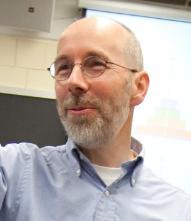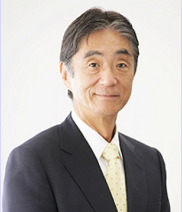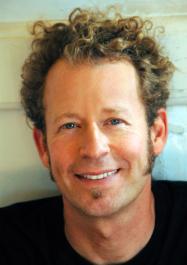Keynote
Skip to content Skip to main navigation
IEEE RO-MAN 2016 In New York City
August 28, 2016
Dr. Yuichiro Anzai
|
||
|
|
Title: Human-robot interaction by information sharing: What were gained for the 25 years and will be gained in the future? Abstract: The talk consists of two messages on the occasion of the RO-MAN’s 25 years anniversary. First, it compiles my thoughts on the emergence and subsequent progress of the human-robot interaction (HRI) research from the viewpoint of information sharing: between humans and robots, and between computer science and cognitive science. This message is accompanied by examples produced from the research done by my colleagues and myself for these 25 years. The second message provides future prospects of the HRI research; particularly including the possibility of expanding our arena to human interaction with environments including any type of active agents, rather than traditional autonomous mobile robots or humanoids, in concordance with the advancement of massive-data technology and social cognitive science. |
|
|
Bio: Yuichiro Anzai is the president of the Japan Society for the Promotion of Science, the representative research funding agency of the Japanese government. He is known for the long-standing research on learning by doing, cognitive interaction, and human-robot interaction, all produced at the intersection of cognitive and computer sciences. He received the Ph.D. from Keio University in 1974. His research, started as a post-doc at Carnegie Mellon University in the mid-1970s, has continued at Keio University and other places. He was the president of Keio University (2001-09). He is now a member of the Council for Science, Technology and Innovation, as well as the chair of the Artificial Intelligence Strategy Committee under the three ministries of the Japanese government. He also was the chair of the Central Council of Education, and has now kept deeply committed to the innovation of Japanese education. |
August 29, 2016
Dr. John H. Long
|
||
 |
Title: Robot (R)Evolution: What Goal-directed Machines Can Tell us About Brains, Brawn, and Behavior Abstract: The robot revolution is scientific. Scientists use physically embodied robots to enact and investigate processes as diverse as behavior, development, and evolution. Physical robots bridge the reality gap faced by software simulations of behaviorally autonomous agents, accounting for the complexities and contingencies of physical-cognitive interactions with the environment in which the robot is embedded. Within this context, we generate hypotheses about the origins and mechanisms of agency by drawing on the organismal proofs-of-concept studied by biologists, neuroscientists, and cognitive scientists. Genomes, cells, connectomes, tissues, organisms, and collectives form hierarchies of interaction networks. A successful scientific robot simplifies this complexity, isolates specific mechanisms, and explores regions of the physical search space left undiscovered by biology. Thus the design of the robot-environment system is driven by the hypothesis to be tested. Depending on the hypothesis, design involves engineering approaches as diverse as materials science, biomechanics, and biomimetics. |
|
|
Bio: John is the Director of the Interdisciplinary Robotics Research Laboratory at Vassar College, where he serves as a professor of Biology and Cognitive Science. He and his collaborators, including undergraduate researchers, build robots to test ideas about behaviorally autonomous agents. A biologist by training, with a background in biomechanics from his Ph.D. at Duke University, his research with robots draws on fields as diverse as evolutionary biology, cognitive robotics, biomimetics, materials science, and behavioral neurobiology. Consistent with this multidisciplinary approach, John serves as an associate editor or an editorial board member on three scientific journals: Bioinspiration and Biomimetics, Frontiers in Robotics and AI, and Soft Robotics. To teach broadly about new approaches in robotics, he has authored Darwin’s Devices: What Evolving Robots Can Teach Us About the History of Life and the Future of Technology, and created a lectures series for The Great Courses, “Robotics.” |
August 30, 2016
Dr. Ken Goldberg
|
||
|
|
Title: Multiplicity: What Robots and AI Can Teach Us About Being Human Abstract: Artificial Intelligence (AI) and robots are in the news and movies. |
|
|
Bio: Ken Goldberg is an artist and UC Berkeley professor since 1995, as a Professor of Industrial Engineering and Operations Research (IEOR), with secondary appointments in Electrical Engineering/Computer Science (EECS), Art Practice, the School of Information, and in the Department of Radiation Oncology at the UCSF Medical School. Ken earned dual degrees in Electrical Engineering and Economics from the University of Pennsylvania (1984) and MS and PhD degrees from Carnegie Mellon University (1990). He is Editor-in-Chief of the IEEE Transactions on Automation Science and Engineering (T-ASE), Co-Founder of the Berkeley Center for New Media (BCNM), the African Robotics Network (AFRON), the Center for Automation and Learning for Medical Robotics (CAL-MR), the CITRIS Data and Democracy Initiative (DDI), Hybrid Wisdom Labs, and Moxie Institute.Ken's art installations are related to his research and have been exhibited at venues including the Whitney Biennial, Berkeley Art Museum, SF Contemporary Jewish Museum, Pompidou Center, Buenos Aires Biennial, and the ICC in Tokyo. Ken co-wrote three award-winning Sundance documentary films, "The Tribe", "Yelp", and "Connected: An Autoblogography of Love, Death, and Technology" and co-directed the Emmy-Nominated Short Doc "Why We Love Robots." Ken's artwork is represented by the Catharine Clark Gallery in San Francisco and he is Founding Director of UC Berkeley's Art, Technology, and Culture Lecture Series (since 1997). |


